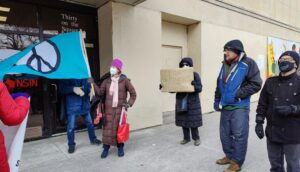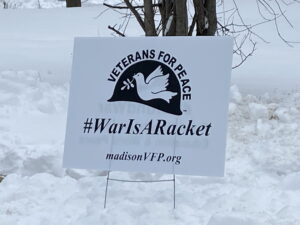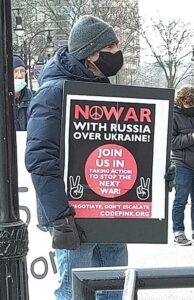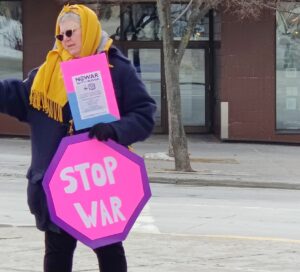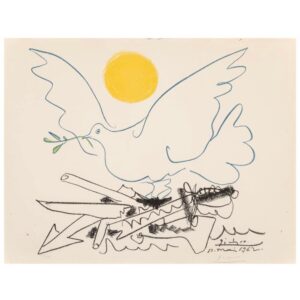Sunday panel with World Beyond War’s David Swanson
UW-Madison professor Samer Alatout and
UW-Madison professor Andrew Kydd
The event was held at The Crossing on the UW Madison Campus area.
Jerel Ballard of Wkow Channel 27 ABC Madison
Advocates discuss paths to peace in ongoing Russia-Ukraine conflict
“More than a year and a half has passed since the start of the Russia-Ukraine conflict, and debates continue about how to end the war.
During a recent Peace in Ukraine panel discussion co-hosted by Madison for a World BEYOND War, advocates from diverse political backgrounds discussed the status of the war and explored their strategies of how to achieve peace in Ukraine.
“My view is that we should continue to support Ukraine,” Andrew Kydd, a professor of political science at UW-Madison, said. “Ukraine is fighting a war of self defense against the Russian invasion. If you don’t fight back, that doesn’t necessarily mean the war ends, it just means that you lose.”
While some expressed support for U.S. aid to Ukraine, others stressed the importance of promoting dialogue, diplomacy and negotiation over military intervention to prevent the escalation of a nuclear war.
“I don’t think there’s been any greater risk of nuclear war nuclear apocalypse for the earth than the risks created by the war in Ukraine,” said David Swanson, the International Director of World BEYOND War. “I think the United States needs to stop sending weapons to all of these wars and encourage diplomacy and negotiation and peace, and not everybody agrees with that.”
While everyone agreed that violence is not the best solution, panelists differed on the most effective approach to achieving peace. Ultimately the goal was not to endorse any specific ideology but to layout the different perspectives.”
ABC 27: Panelists Discuss the War in Ukraine at UW-Madison ~ Video ~

David Swanson , Director of World Beyond War
“Nothing in my lifetime has done more to increase the risk of nuclear apocalypse than the war in Ukraine. Nothing is doing more to impede global cooperation on climate, poverty, or homelessness. Few things are doing as much direct damage in those areas, devastating the environment, disrupting grain shipments, creating millions of refugees. While casualties in Iraq were heatedly disputed in U.S. media for years, there’s widespread acceptance that casualties in Ukraine are already at half a million. There’s no way to precisely count how many lives could have been saved around the world by investing hundreds of billions in something wiser than this war, but a small fraction of that could have ended starvation on Earth. The war is leaving for those who’ve survived lands full of rubble, unexploded bombs and cluster bomblets, poisons of all sorts, poverty, trauma, and hatred and resentment. Ukrainian and Russian families are mourning the loss of loved ones forced into war or charged with the crime of opposing war.
Russia and Ukraine successfully negotiate prisoner exchanges, return of children, return of corpses, safe passage for ships, even as each side claims the other is a monster that cannot be spoken with and must be killed.
Russia and Ukraine each claim that compromise is treason — can you imagine if we taught that in preschools instead of parliaments — and that total victory is just around the corner. But the land gained by each side since January 1st is hardly enough to bury the corpses generated in gaining it, and don’t take it from me: the Ukrainian commander-in-chief General Valery Zaluzhny calls it a World War I-like stalemate. This ends one of two ways: nuclear war that threatens all life on Earth or negotiation.
Negotiation is bad for weapons profits, embarrassing for politicians who have spent years denouncing it, and emotionally difficult — but not intellectually difficult. The basic terms of a settlement are found in the pre-war Minsk II agreement, in the Russian proposal of December 2021, in the agreement nearly reached before Western sabotage of it in the spring of 2022, and in dozens of peace proposals from governments around the world. The terms include: removal of all foreign troops, neutrality for Ukraine, demilitarization, lifting sanctions, and autonomy for Crimea and Donbas. The main sticking point for the West, ironically enough, is democracy. Ever since Crimea voted overwhelmingly to rejoin Russia following a U.S.-backed coup in 2014, hundreds of Western commentators have called it the worst act of the century, worse than the war on Iraq, yet not a one has supported holding a re-vote no matter how conducted. The people in Eastern Ukraine were supposed to have autonomy. Denying it to them in the name of war for the Rules Based Order is a disaster. Doing so with endless free weapons shipments that the U.S. public has never voted for and in some polls would reject if given the chance makes a mockery of the word democracy.
As the leading holdout on basic human rights treaties, top opponent of international courts, top abuser of the veto at the UN, and leading weapons dealer to dictatorships and so-called democracies, the U.S. government has plenty of room to shift to promoting democracy and peace by example instead of by bombing.
U.S. and other Western diplomats, spies, and theorists predicted for 30 years that expanding NATO would lead to war with Russia. President Barack Obama refused to arm Ukraine, predicting that doing so would lead toward where we are now — as Obama still saw it in April 2022. Prior to the so-called “Unprovoked War” there were public comments by U.S. officials arguing that the provocations would not provoke anything. “I don’t buy this argument that, you know, us supplying the Ukrainians with defensive weapons is going to provoke Putin,” said Sen. Chris Murphy (D-Conn.) One can still read a RAND report advocating creating a war like this one through the sorts of provocations that senators claimed wouldn’t provoke anything. And doing so for the purpose various Congress Members tell you the war is being waged: to hurt Russia.
Provoked or not, you have a horrendous, murderous, criminal invasion — predictably and absurdly counterproductive from the perspective of the Russian claim to be pushing back against NATO. It may be true that if the shoe were on the other foot, that if Russia had put nuclear-capable missile bases near the U.S. border, the U.S. would have done something just as evil. The U.S. recently did things more evil in Iraq and Afghanistan with fictional excuses. When the Soviets put missiles in Cuba the U.S. almost destroyed the world. But then it resolved the matter through compromise, even while publicly pretending to have done so through machismo, teaching those of us yet to come the wrong lesson. And there is no question that both sides built up to this catastrophe for years. Zelensky was elected for peace, and then bullied by the rightwing, with the U.S. accepting or supporting the shift toward hostility. But once you have a brutal invasion, what can be done?
One thing that could have been done is negotiate peace. According to Ukrainian media, Foreign Affairs, Bloomberg, and Israeli, German, Turkish, and French officials, the U.S. and UK pressured Ukraine to prevent a peace agreement in the early days of the invasion. Since then, the U.S. and allies have provided mountains of free weapons to keep the war going. Eastern European governments have expressed concern that if the U.S. slows or ends the weapons flow, Ukraine might become willing to negotiate peace again.
Another thing that could have been done is unarmed resistance. Coups and dictators have been nonviolently ousted in dozens of places. An unarmed army helped liberate India. In 1997 unarmed peacekeepers in Bougainville succeeded where armed ones had failed. In 2005 in Lebanon, Syrian domination was ended through a nonviolent uprising. In 1923 the French occupation of part of Germany was ended through nonviolent resistance. Between 1987 and 91 nonviolent resistance drove the Soviet Union out of Latvia, Estonia, and Lithuania — and the latter established plans for future unarmed resistance. Ukraine had nonviolently ended Soviet rule in 1990. Some of the tools of unarmed resistance are familiar from 1968 when the Soviets invaded Czechoslovakia.
In polls in Ukraine, prior to the Russian invasion, not only did people know what unarmed resistance was, but more of them favored it than favored military resistance to an invasion. When the invasion happened, there were hundreds of incidents of Ukrainians using unarmed resistance, stopping tanks, etc. But there was near media silence on early unorganized and unsupported attempts at unarmed resistance. What if the attention paid to Ukrainian war heroes was paid to Ukrainian unarmed resister heroes? What if the world of people who want peace were invited to join in the unarmed resistance, and the billions spent on weapons had been spent on that? What if Ukrainians had been asked to host international protectors, people like us with and without any training, rather than to flee their country or join the war?
People would likely have been killed, and for some reason, those deaths would have been deemed far worse. But they would very likely have been far fewer. The path that has been chosen in Ukraine has led to half a million casualties, 10 million refugees, an increased risk of nuclear war, a severing of international cooperation that pretty well dooms us to climate collapse, a diversion of resources globally into militarism, environmental destruction, food shortages, and risk of disaster at a nuclear powerplant.
If instead of blowing up pipelines and selling fossil fuels some 10% of what has been spent had gone into green energy in Ukraine, humanity’s future would be brighter. At this point, some observable action must precede negotiations. Either side could announce a ceasefire and ask that it be matched. Either side could announce a willingness to agree to a particular agreement. If a ceasefire is not matched, the slaughter can be quickly resumed. If a ceasefire is used to build up troops and weapons for the next battle, well then, the sky is also blue and a bear does it in the woods. Nobody imagines either side as capable of switching off the war business that quickly. A ceasefire is required for negotiations, and an end to weapons shipments is required for a ceasefire. These three elements must come together. They could be abandoned together if negotiations fail. But why not try?” ~
Veterans for Peace was a sponsor of the event and assisted in organizing the event.
Please check out the VFP position and actions around Ukraine and Russia/US proxy war.
Position Statements | Veterans For Peace

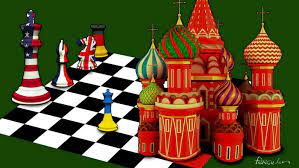


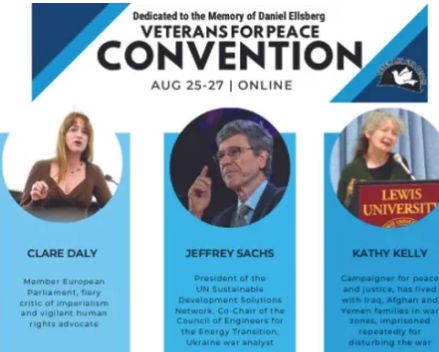


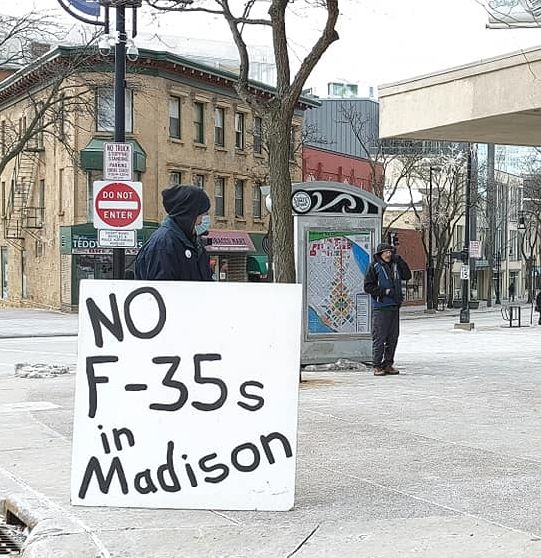
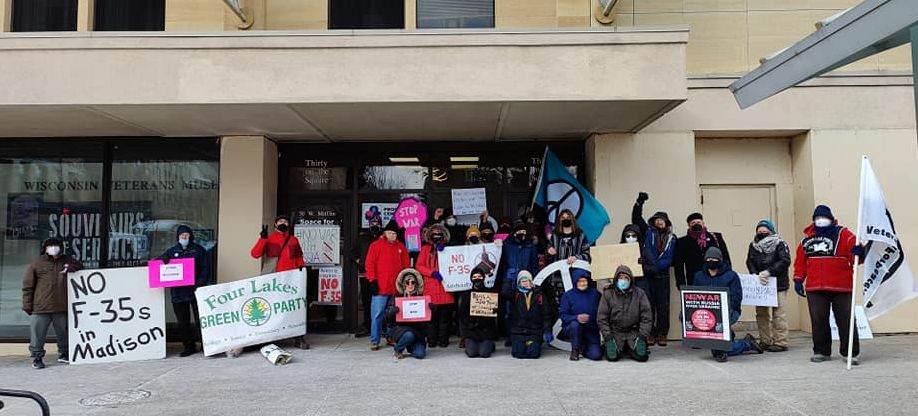

 Putin into his current position, indefensible as it may be. The former CIA analyst, who played a critical role in drafting The Strategic Arms Reduction Treaty (START I) signed by George W. Bush and Mikhail Gorbachev in 1991, also warns listeners about the dangers of the U.S. allowing nuclear treaties to expire that, for 30 years, have kept us from annihilation. Listen to the full discussion between McGovern and Scheer as they offer differing but critical perspectives on the Ukraine conflict absent in most Western media.”
Putin into his current position, indefensible as it may be. The former CIA analyst, who played a critical role in drafting The Strategic Arms Reduction Treaty (START I) signed by George W. Bush and Mikhail Gorbachev in 1991, also warns listeners about the dangers of the U.S. allowing nuclear treaties to expire that, for 30 years, have kept us from annihilation. Listen to the full discussion between McGovern and Scheer as they offer differing but critical perspectives on the Ukraine conflict absent in most Western media.”
